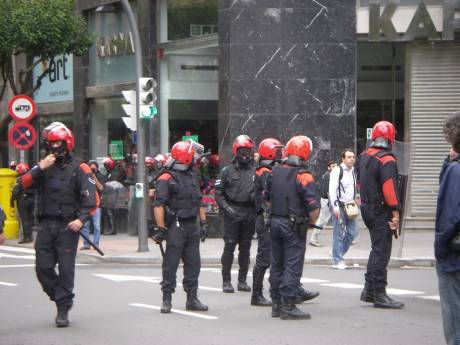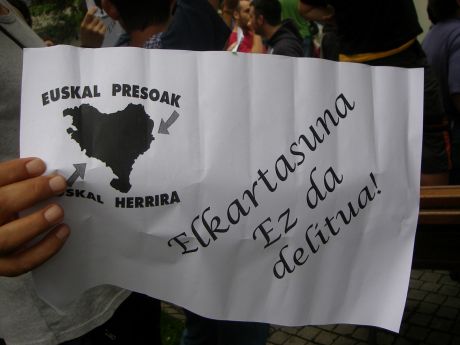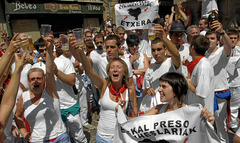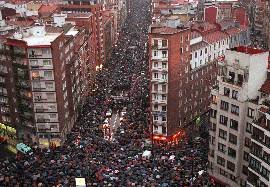 The Wholesome Photo of the Month Thu May 09, 2024 11:01 | Anti-Empire The Wholesome Photo of the Month Thu May 09, 2024 11:01 | Anti-Empire
 In 3 War Years Russia Will Have Spent $3... Thu May 09, 2024 02:17 | Anti-Empire In 3 War Years Russia Will Have Spent $3... Thu May 09, 2024 02:17 | Anti-Empire
 UK Sending Missiles to Be Fired Into Rus... Tue May 07, 2024 14:17 | Marko Marjanović UK Sending Missiles to Be Fired Into Rus... Tue May 07, 2024 14:17 | Marko Marjanović
 US Gives Weapons to Taiwan for Free, The... Fri May 03, 2024 03:55 | Anti-Empire US Gives Weapons to Taiwan for Free, The... Fri May 03, 2024 03:55 | Anti-Empire
 Russia Has 17 Percent More Defense Jobs ... Tue Apr 30, 2024 11:56 | Marko Marjanović Russia Has 17 Percent More Defense Jobs ... Tue Apr 30, 2024 11:56 | Marko Marjanović Anti-Empire >>
A bird's eye view of the vineyard
 Alternative Copy of thesaker.is site is available Thu May 25, 2023 14:38 | Ice-Saker-V6bKu3nz Alternative Copy of thesaker.is site is available Thu May 25, 2023 14:38 | Ice-Saker-V6bKu3nz
Alternative site: https://thesaker.si/saker-a... Site was created using the downloads provided Regards Herb
 The Saker blog is now frozen Tue Feb 28, 2023 23:55 | The Saker The Saker blog is now frozen Tue Feb 28, 2023 23:55 | The Saker
Dear friends As I have previously announced, we are now “freezing” the blog. We are also making archives of the blog available for free download in various formats (see below).
 What do you make of the Russia and China Partnership? Tue Feb 28, 2023 16:26 | The Saker What do you make of the Russia and China Partnership? Tue Feb 28, 2023 16:26 | The Saker
by Mr. Allen for the Saker blog Over the last few years, we hear leaders from both Russia and China pronouncing that they have formed a relationship where there are
 Moveable Feast Cafe 2023/02/27 ? Open Thread Mon Feb 27, 2023 19:00 | cafe-uploader Moveable Feast Cafe 2023/02/27 ? Open Thread Mon Feb 27, 2023 19:00 | cafe-uploader
2023/02/27 19:00:02Welcome to the ‘Moveable Feast Cafe’. The ‘Moveable Feast’ is an open thread where readers can post wide ranging observations, articles, rants, off topic and have animate discussions of
 The stage is set for Hybrid World War III Mon Feb 27, 2023 15:50 | The Saker The stage is set for Hybrid World War III Mon Feb 27, 2023 15:50 | The Saker
Pepe Escobar for the Saker blog A powerful feeling rhythms your skin and drums up your soul as you?re immersed in a long walk under persistent snow flurries, pinpointed by The Saker >>
 George Orwell is Being Cancelled Wed Jul 24, 2024 19:30 | Paul Sutton George Orwell is Being Cancelled Wed Jul 24, 2024 19:30 | Paul Sutton
George Orwell himself is being cancelled, says Paul Sutton. In a conversation with Oxford Literature postgraduate students, it became clear that the great opponent of authoritarianism was no longer welcome.
The post George Orwell is Being Cancelled appeared first on The Daily Sceptic.
 Farage Calls for Referendum on European Convention on Human Rights Wed Jul 24, 2024 17:39 | Will Jones Farage Calls for Referendum on European Convention on Human Rights Wed Jul 24, 2024 17:39 | Will Jones
Keir Starmer says he will never withdraw from the ECHR because there is "no need" and Rishi Sunak did not disagree, despite it being the reason he failed to stop the boats. Nigel Farage says it's time to ask the people.
The post Farage Calls for Referendum on European Convention on Human Rights appeared first on The Daily Sceptic.
 Fifteen Year-Old Swiss Girl Taken into Care After Parents Refuse to Consent to Course of Puberty Blo... Wed Jul 24, 2024 15:00 | Dr Frederick Attenborough Fifteen Year-Old Swiss Girl Taken into Care After Parents Refuse to Consent to Course of Puberty Blo... Wed Jul 24, 2024 15:00 | Dr Frederick Attenborough
A Swiss girl has been been taken into care because her parents stopped her taking puberty blockers, breaching a ban on conversion therapy. Is this what Labour means by a "full, trans-inclusive ban on conversion practices"?
The post Fifteen Year-Old Swiss Girl Taken into Care After Parents Refuse to Consent to Course of Puberty Blockers appeared first on The Daily Sceptic.
 Net Zero is Impoverishing the West and Enriching China Wed Jul 24, 2024 13:30 | Will Jones Net Zero is Impoverishing the West and Enriching China Wed Jul 24, 2024 13:30 | Will Jones
The West's headlong rush to jettison fossil fuels and hit 'Net Zero' CO2 emissions is impoverishing us while enriching China, which is ramping up its coal-fired industry to sell us all the 'green' technology.
The post Net Zero is Impoverishing the West and Enriching China appeared first on The Daily Sceptic.
 The Threat to Democracy Wed Jul 24, 2024 11:29 | James Alexander The Threat to Democracy Wed Jul 24, 2024 11:29 | James Alexander
'Populists' like Donald Trump and Nigel Farage are a "threat to democracy", chant the mainstream media. In fact, they are just reminding our politicians what they are supposed to be doing, says Prof James Alexander.
The post The Threat to Democracy appeared first on The Daily Sceptic. Lockdown Skeptics >>
Voltaire, international edition
 Netanyahu soon to appear before the US Congress? It will be decisive for the suc... Thu Jul 04, 2024 04:44 | en Netanyahu soon to appear before the US Congress? It will be decisive for the suc... Thu Jul 04, 2024 04:44 | en
 Voltaire, International Newsletter N°93 Fri Jun 28, 2024 14:49 | en Voltaire, International Newsletter N°93 Fri Jun 28, 2024 14:49 | en
 Will Israel succeed in attacking Lebanon and pushing the United States to nuke I... Fri Jun 28, 2024 14:40 | en Will Israel succeed in attacking Lebanon and pushing the United States to nuke I... Fri Jun 28, 2024 14:40 | en
 Will Netanyahu launch tactical nuclear bombs (sic) against Hezbollah, with US su... Thu Jun 27, 2024 12:09 | en Will Netanyahu launch tactical nuclear bombs (sic) against Hezbollah, with US su... Thu Jun 27, 2024 12:09 | en
 Will Israel provoke a cataclysm?, by Thierry Meyssan Tue Jun 25, 2024 06:59 | en Will Israel provoke a cataclysm?, by Thierry Meyssan Tue Jun 25, 2024 06:59 | en Voltaire Network >>
|
Police Attack Basque Festivals As Spanish State Tries To Break Solidarity With Political Prisoners
 international |
rights, freedoms and repression |
news report international |
rights, freedoms and repression |
news report
 Thursday September 17, 2009 16:46 Thursday September 17, 2009 16:46 by Cormac Mac Gall - None by Cormac Mac Gall - None

“Unprecedented interference” in Gernika and other Basque town festivals as Spanish state tries to break Basque solidarity with the political prisoners -- injuries and riots after police attacks
The Spanish state over recent months has intensified its campaign against Basque solidarity with the political prisoners but seems to have succeeded only in raising the profile of the prisoners and in further alienating Basques from the Spanish state. The campaign against the solidarity movement has combined judicial decrees, governmental action and police baton charges with the firing of rubber bullets while silence or misrepresentation has been the response of much of the media.
 Heavy Spanish-Basque police pre-emptively occupy Bilbao site of banned demonstration of prisoners' solidarity in August '09 (demonstration went ahead and was attacked by police). The period of July-August is the quintessential season of festivities in the Basque Country. Over a number of weeks, cities in the southern Basque Country (i.e. under Spanish rule) stage their annual festivals. The Basque pro-independence Left and organisations such as that of the political prisoners’ relatives, Etxerat, organise some of their annual events to also take place at that time. The Spanish state forces the towns to fly the Spanish flag during the festivals and for many years the demonstrations (and riots!) were often in protest at that imposition. However for some years now the pro-independence Left hold a rally in honour of the Basque national flag instead as well as publicising some other issues of concern.
BASQUE SOCIETY AND THE POLITICAL PRISONERS
Basque society attitudes towards rule by the Spanish government are generally, to various degrees, hostile; as a result of that and loyalties towards the movement for Basque independence on the one hand and, on the other, a multiplicity of attitudes towards religion, armed actions etc, attitudes towards the Basque pro-independence Left are complex. However, as virtually every Basque personally knows someone who is or was a political prisoner, support for the demands of the prisoners’ relatives ranges from the tacit to the explicit.
Demonstrations, ceremonies, concerts, huge group meals, singing tours of pubs, picket lines and enactments, as in previous years, were all planned by Etxerat and the Basque Left to take place during the festivals. This year, the Spanish state declared virtually all of the manifestations to be illegal – either “glorifying terrorism” or “having the same aims as a terrorist organsiation.” This has been the case even with organisations that have never been declared illegal – or “not yet”, as many Basques say, remembering the five political parties or electoral platforms, the two youth organisations, two campaigning groups, the newspaper and the radio station that have all been declared illegal in recent years.
In Gernika (Guernika) an emergency meeting of the Council took place a few days before the town’s festival launch date. There was only one item on the agenda: the forthcoming annual Gernika Festival, the ceremonial address and the identity of those who were going to read it. The Gernika Rugby Club was being honoured for their achievement in making it into the First Division. They had joined with Etxerat, the organisation of political prisoners’ relatives, to carry out the ceremonial action. However, the Spanish special high court, the Audiencia Nacional, had declared Etxerat to be “supporting terrorism” and had banned them and the Rugby Club from reading out the ceremonial address.
“UNPRECEDENTED INTERFERENCE” IN THE FESTIVITIES
The Gernika Council is composed of representatives of various Basque nationalist parties and one representative of the pro-Spanish Labour Party (PSE). The ANV are representative of the pro-independence Basque Left (Batasuna and most other parties of the Left having been consistently banned from standing in elections) and have three representatives on the Council. Although the Council agreed a statement that the interference by the Spanish state in their annual festival was “unprecedented” they failed to agree an amendment by the ANV representatives, who then left the meeting. The remainder of the Council agreed that the beginning of the festival would be marked without ceremony – the Gernika Rugby Club and Etxerat would not be permitted to read the address or launch the opening rocket as they had been been chosen to do but there would be no fanfare or rocket launch to begin the festivities, also an unprecedented break from tradition. The town’s Mayor, who belongs to the conservative Basque nationalist PNV, protested at the police interference with the local festival. A protest demonstration later was attacked by the Ertzainza, the pro-Spanish police of the Basque Autonomous Regional Government, with four arrested and twenty injured.
There are at least 765 Basque political prisoners scattered over Spanish and French jurisdictions. The relatives’ organisation, Etxerat, has been campaigning for years for the prisoners to be permitted to serve their sentences near their families but dispersal is clearly French and Spanish state policy. Etxerat have also been campaigning for seriously and even terminally ill prisoners to be released to hospital in the Basque Country or to their homes. The families have also protested the recent measures to deny the prisoners remission and to lengthen the maximum actual time served from 30 to 40 years.
PRISONERS’ SOLIDARITY IN THE BASQUE COUNTRY
Solidarity with the prisoners takes many forms in the Basque Country. Some hang the banners Euskal Presoak Euskal Herrira! (“Basque prisoners home to the Basque Country!”), depicting the outline of the country with arrows from Spanish and French territories pointing into the country, from their balconies or in their windows. They also smuggle them into Bilbao Athletic football matches and sit behind the goals, displaying them. Etxerat organises vigils to take place every Friday, in every village and town (some towns have several and in some towns on other days as well).
The weekly vigils by the prisoners’ relatives have also come under attack. At the beginning of August the pro-independence Deputy Mayor of Villabona, Remi Aiestaran, died from a heart attack following a confrontation with the Ertzainza. The masked and armed pro-Spanish Basque Police arrived in ten vans and took over the town’s main square just as the weekly vigil was about to start. The relatives abandoned the protest in order to avoid disturbances during the local festivities and moved to another square where youth had organised performances by music bands. However, the police followed them there and, according to witnesses, began to harass and provoke Remi Aiestaran after which he suffered his fatal heart attack.
The local festivities were immediately suspended and an emergency Council meeting was convened, at which the police repression was denounced. Remi Aiestaran’s funeral was attended by thousands and an homenaje (a tribute ceremony) was held in which he was remembered by speakers as a much-loved and active member of the community. A demonstration followed and a general strike was held in the town some days later.
DEMONSTRATIONS ATTACKED BY POLICE
In mid-August in Donosti/ San Sebastian, the weekly Friday vigil for the prisoners was attacked when it was about to finish after marching peacefully and in silence as has been done for the past 19 years. Elderly relatives carrying the pictures of almost 100 local prisoners were attacked by the Basque-Spanish police with batons and rubber bullets and at least one man, an 85-year-old, had to be taken to hospital; he was batoned after protesting at the beating of another senior citizen by the police. The man who was being defended made a complaint and statement to the Basque newspaper GARA. Complaints that the police were high on drugs and or alcohol were made by many witnesses (this has been said for many years of the grey-uniformed Guardia Civil but not previously of the red-and-black uniformed Ertzainza).
The attacks happened while the city was celebrating the local festival and even disrupted a traditional music event (the police got the address of the protest venue wrong and wouldn’t listen to the locals attending the music event; they ordered them out and occupied the bar for nearly two hours).
DISPLAYING PHOTOGRAPHS OF PRISONERS BECOMES A CRIMINAL OFFENCE
Photographs of prisoners who lived locally are displayed in the pro-independence Left movement’s taverns (“herriko tabernak”) and in other overtly pro-independence bars, as well as in many “gastetxe” (local “liberated spaces”) and even on the walls of buildings (in Hernani the pictures are about 2 metres square). The Spanish-Basque police, the Ertzainza, have been entering buildings for some months now to remove photos and last month the Spanish state decided that displaying these photographs is “glorifying terrorism”, declaring it illegal to do so. Conviction under Spain’s anti-terror laws carries a minimum of four years’ jail and a maximum of 30.
In late August dozens of masked and armed Ertzainza entered the Bilbao festival's main area and took down Basque political prisoners' pictures and banners from several txosnak (temporary open air bars). Some volunteer staff were identified and will be added to the list of people to be charged with “glorifying terrorism”. This list could reach a total of 1,000 people by the end of the summer. Punters chanted slogans against the police and the names of the local Basque political prisoners were suddenly played through the bars' speakers to the despair of the policemen.
Another annual display of solidarity is a maritime one as picket lines are held all along the Basque coast. This event took place on the 16th of last month.
Thousands of kilometres are travelled each month by relatives and friends on their way to and from visiting prisoners and of course they also write to them (with big delays for any language other than Spanish). They are not permitted telephone calls. Prisoners now are on protest against new restrictions which include the reduction of permitted letters each prisoner may receive to two per week and other restrictions interfering with their studies. Etxerat also says that their relatives are held in solitary confinement more often than any other prisoners and that some are in solitary practically permanently.
Another annual display of solidarity is a maritime one as picket lines are held all along the Basque coast. This event took place recently too.
WELCOME HOME TO PRISONERS
When prisoners are finally released, an “ongi etorri” (welcome) feast is organised for them. However, the Ertzainza has been attacking these feasts for some time and now tribute ceremonies have been declared illegal too. Recently a man who presented a bouqet of flowers to the mother of a prisoner was arrested and the prosecution is asking for a prison sentence of four years.
The Spanish state also banned prisoners’ solidarity demonstrations in Donosti, Gastheis/ Vittoria, Bilbao). The annual Amnestia demonstration and others for free speech and democracy were also banned. When the organisations tried to hold them anyway, they were dispersed with baton charges and rubber bullets by the Ertzainza but in some places the demonstrators managed to regroup and to continue to their destination. Many demonstrators and uninvolved bystanders were injured and some elderly prisoners’ relatives were hospitalised; riots continued in some areas for hours afterwards. Arrests were made, although the total number of detainees is still not certain, due to Spanish “anti-terrorism” powers of holding without access to legal representation.
Last Saturday, 12,000 people crowded the streets of Donostia/ San Sebastian to demand the repatriation of all Basque political prisoners who are dispersed to more than 80 jails across France and Spain. The rally was permitted by the Basque Regional Government after the PNV (Basque Nationalist Party) stated that the policy of making solidarity with the prisoners disappear had failed and that manifestations of solidarity were now more prevalent than ever.
In the largest demonstration seen in the city since 2002, the atmosphere was tense and emotional, following months of bannings, police attacks and subsequent riots. The demonstrators walked in silence.
The usual large photographs were absent, due to the Spanish state’s ban on public display of prisoners’ images but many relatives displayed pocket-sized photos of their loved ones.
Among the speakers at the rally concluding the march was the father of Oihane Errazkin, political prisoner who apparently committed suicide in a French jail five years ago. He revealed that relatives intend to meet with political parties and with trade unions to ask them for commitments towards the prisoners in order to break the Spanish state’s policy of fear and intimidation.
Sunday saw the finals of the boat races in the town and flags, banners and pictures of prisoners were everywhere, rendering the police helpless to contain them.
As the Spanish state, directly or through the Basque Regional Government, intensifies its attacks on the prisoners’ solidarity movement and tries to drive it underground, pictures of prisoners appear in more public places than before; as the Ertzainza remove them they are replaced, sometimes by even more than before. This was the case in Altasu at last weekend’s festivities, where large pictures of prisoners appeared everywhere. Some weeks earlier, hundreds of Basque citizens held a press conference in which they all held pictures of political prisoners. This summer a new slogan has appeared on walls, posters and on banners: “Elkartasuna ez dago delitua!” (Solidarity is not a crime!).
In Ireland, the Republican movement often accused the British authorities of using Irish political prisoners as hostages. After the long campaign to criminalise the prisoners failed spectacularily with the ten hunger strike deaths of 1981, the British state was prepared to accommodate negotiations that included the prisoners. Indeed, it could be said that the prisoners were a vital component in Sinn Féin 'selling' the Good Friday Agreement to the majority of their membership.
As on so many other issues, the Spanish state and the Basque movement of resistance seem locked in a long fight over the prisoners with no resolution in sight. It is not clear whether Spain's strategy is to totally stonewall and break the Basque independence movement or whether it is to wear them down and then offer concessions in the future. Concessions such as better conditions for the prisoners and an end to their dispersion which, although not vitally harmful to the hegemony of the Spanish state, are so ardently desired by so many Basques.

Despite police repression and the Spanish state forbidding the display of photos of prisoners, the photos appear everywhere.

Despite repression, the prisoners are remembered by Basques during their festivals.

Aerial view of prisoners' solidarity march in Bilbao, January '09.

Solidarity is not a crime! Message displayed by prisoners
|
 international |
rights, freedoms and repression |
news report
international |
rights, freedoms and repression |
news report
 Thursday September 17, 2009 16:46
Thursday September 17, 2009 16:46 by Cormac Mac Gall - None
by Cormac Mac Gall - None





























 printable version
printable version

 Digg this
Digg this del.icio.us
del.icio.us Furl
Furl Reddit
Reddit Technorati
Technorati Facebook
Facebook Gab
Gab Twitter
Twitter
View Full Comment Text
save preference
Comments (10 of 10)